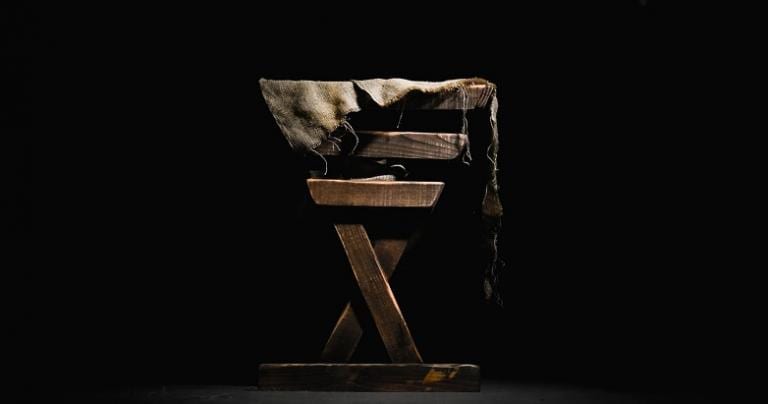
Historical or truthful?—there are reasons for thinking that the biblical stories of Jesus’ birth are not historical in many details.
Historical? Or true? Aren’t they one and the same? Alas, 21st century Americans have a hard time making distinctions between truth and facts. We are so science-obsessed, so fact-precise, we mistake truth and facts constantly. The West is the only culture that cannot distinguish truth and facts.
All facts are true but not all truths are facts. Thus truth is not reducible to historical truth. As far as the “historical” goes, not all cultures tell “history” with obsession for “just the facts” as we Americans do. Our Bible is Mediterranean, not American. Therefore the Scriptures are all true and some of it actually happened. That applies just as much for the Gospels and their Infancy Narratives.
What Are You Saying??
I can anticipate what many reading this are thinking. Wait! Are you saying that the stories of Jesus’ birth found in “Matthew” and “Luke” are not historical?
Well maybe in addition to being true they also present some historical truth. But if that is so, in what way and to what extent are they historical?
It is reasonable to consider that these two stories, from whence the core of our Christmas traditions come, are historical in some way. But we American Christians should be cautious here. Even in the way they present some historical truth, that does not mean the Infancy Narratives are historical in how 21st century Americans think and do “history.”
The way a scholar like Raymond E. Brown would phrase the issue is that there are reasons for thinking that the birth stories, which are found in the first two chapters of “Matthew” and the first two chapters of “Luke,” are not historical in many details.
Two facts should be kept in mind in relation to that judgment.
Fundamentalistic Obsessions
First, a growing number of Catholics assume that questioning the historicity of the birth narratives means questioning official Church Teaching. The claim is made by Catholic fundamentalists that the ancient and traditional Teaching of the Church was that the Scriptures were dictated by God and therefore completely inerrant. Many wrongly think that the Church from 33 AD onward believed that unless they obviously present metaphors, biblical passages must be interpreted as reporting something literally factual or historical. Hence, Matthew 1—2 and Luke 1—2 present narratives of historical facts.
That is not true—there is no official church statement in force that the birth narratives are literally historical. Fundamentalism, Catholic or otherwise, is recent—it is a reaction to modernity. Christian fundamentalism wasn’t born until the early 20th century United States, mothered by late 19th century American Protestant reactions to Charles Darwin and higher criticism of the Scriptures. Biblical literalism is older, having roots mainly in the third generation of the Reformers who stressed plenary inspiration. Consequently, Biblical literalism is just three centuries old. Think about that.
Concerning Catholic Teaching and the historicity of the Gospels, the Pontifical Biblical Commission explains matters in their 1964 document, “The Historical Truth of the Gospels.” Fascinating insights are presented there. But that document very clearly deals only with what the disciples heard and saw of Jesus during his public ministry.
Sometime after, an attempt was mounted to have the Commission issue a statement on the historicity of the birth narratives. This was abandoned in the late 1960s. Why? Raymond E. Brown explained that it was probably because any such statement would have been overly complicated and nuanced.
No Apostolic Witness
Brown gives a second fact for regarding Matthew 1—2 and Luke 1—2 as unhistorical in many details. To get to it, Brown asks why do we possess a tradition about what Jesus did and said in the first place? Isn’t it because people who had accompanied Jesus were capable of reporting his deeds and sayings? We are talking, of course, about the Twelve and the other followers who made up the Jesus Movement in the late 20s, first century CE.
But were any of those people present at Jesus’ birth? No way. Therefore Brown says that we cannot claim that we have apostolic witness to the events surrounding Jesus’ birth. Matthew 1—2 and Luke 1—2 being inspired does not change that, folks.
Journey through Christmas
Beginning today, and every day throughout December and into the New Year, this blog, Messy Inspirations, is going to journey with you through Advent and Christmas. We will be presenting a serious look at the Infancy Narratives of Matthew 1—2 and Luke 1—2.
An invitation: familiarize yourselves with these separate and very different stories. Let’s set our Rosaries down, turn off our favorite Christmas-time Jesus-movies, and read each narrative by itself. We should keep a notepad and pen handy and jot down details particular to each. We might just be surprised what we find!












